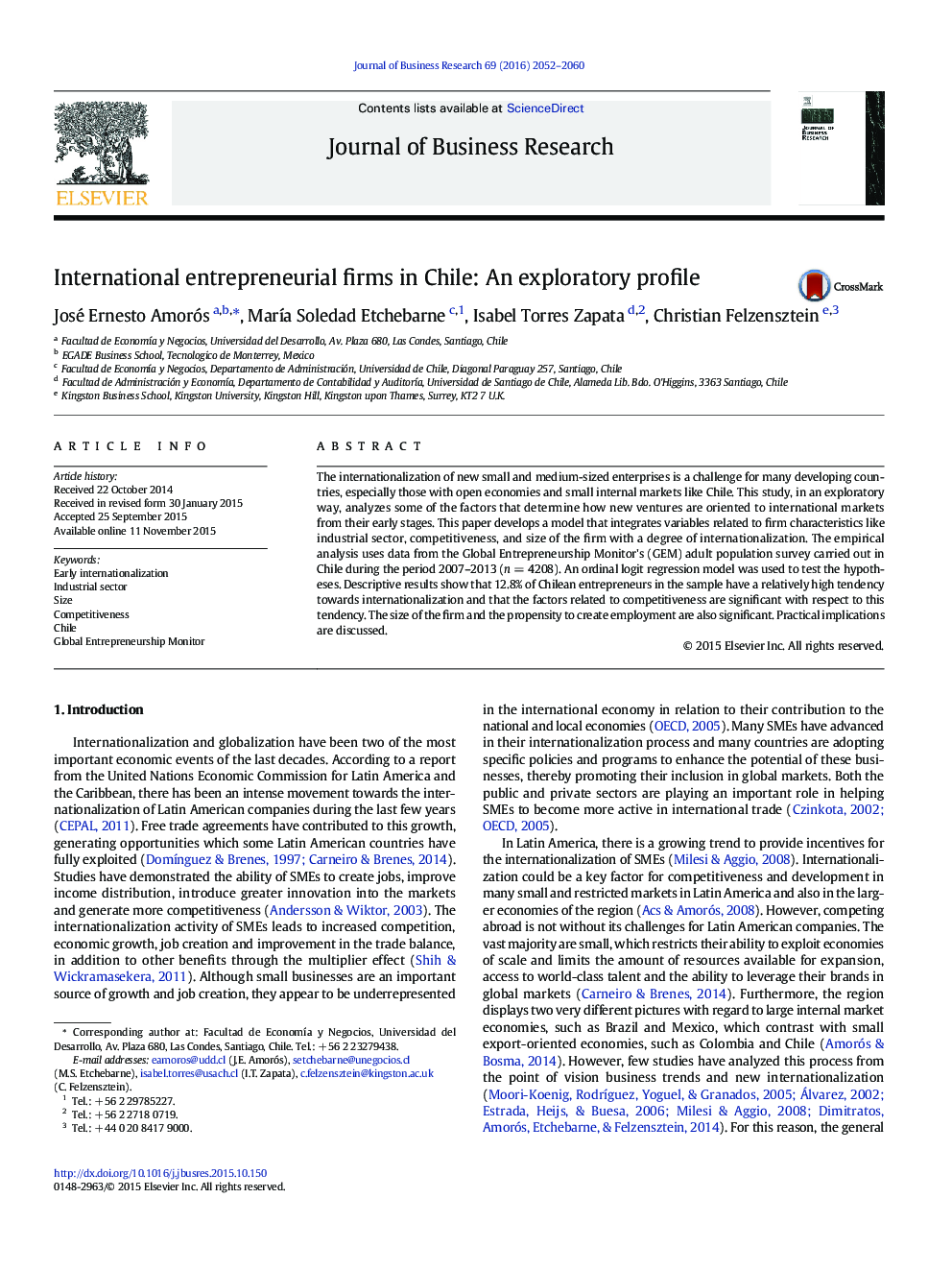| Article ID | Journal | Published Year | Pages | File Type |
|---|---|---|---|---|
| 1016930 | Journal of Business Research | 2016 | 9 Pages |
Abstract
The internationalization of new small and medium-sized enterprises is a challenge for many developing countries, especially those with open economies and small internal markets like Chile. This study, in an exploratory way, analyzes some of the factors that determine how new ventures are oriented to international markets from their early stages. This paper develops a model that integrates variables related to firm characteristics like industrial sector, competitiveness, and size of the firm with a degree of internationalization. The empirical analysis uses data from the Global Entrepreneurship Monitor's (GEM) adult population survey carried out in Chile during the period 2007-2013 (n = 4208). An ordinal logit regression model was used to test the hypotheses. Descriptive results show that 12.8% of Chilean entrepreneurs in the sample have a relatively high tendency towards internationalization and that the factors related to competitiveness are significant with respect to this tendency. The size of the firm and the propensity to create employment are also significant. Practical implications are discussed.
Keywords
Related Topics
Social Sciences and Humanities
Business, Management and Accounting
Business and International Management
Authors
José Ernesto Amorós, MarÃa Soledad Etchebarne, Isabel Torres Zapata, Christian Felzensztein,
